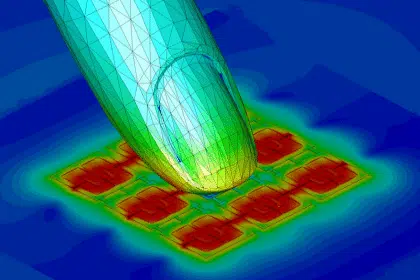
Dymola
Modeling and Simulation of integrated and complex systems
Dymola Key Use Cases & Benefits
Multi-Engineering
Dymola has unique multi-engineering capabilities which means that models can consist of components from many engineering domains. This allows for models of complete systems that better depict reality.
Libraries in many different engineering domains are available that contain components for mechanical, electrical, control, thermal, pneumatic, hydraulic, power train, thermodynamics, vehicle dynamics, air -conditioning, etc.
The Systems engineering capabilities of Dymola empower you to model and simulate any physical component that can be described by ordinary differential equations and algebraic equations.

Intuitive Modeling
Dymola’s graphical editor and the multi-engineering libraries make modeling easy. The libraries include elements corresponding to physical devices which are simply dragged-and-dropped to build the model. Interactions between the components are conveniently described by graphical connections that model the physical coupling of the components. This means that models are intuitively organized the same way as the physical system is composed.

Open & Flexible
The Dymola environment is completely open, in contrast to many modeling tools that have a fixed set of component models and proprietary methods for introducing new components.
Dymola Users can easily introduce components that match the user’s own and unique needs. This can be done either from scratch or by using existing components as templates. The open and flexible structure makes Dymola an excellent tool to simulate new or alternative designs and technologies.
Dymola is based on Modelica®, which is an object-oriented language for physical modeling developed by the Modelica Association.

Interoperability Options
Dymola offers a broad variety of interoperability options. Profit from the full support of the FMI standard or use the Simulink interface.
By combining the multi-domain modeling strengths of Dymola with the computational power of SIMULIA products as Abaqus, or iSight you will get faster simulations at a higher level of detail.

Symbolic Manipulation
Enjoy unique and outstanding performance for solving differential algebraic equations (DAE).
The key to high performance and robustness is symbolic manipulation, which also handles algebraic loop and reduced degrees-of-freedom caused by constraints.
These techniques together with special numerical solvers enable real-time Hardware-in-the-Loop Simulations (HILS).



